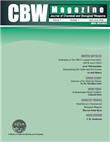India
India-Vietnam Relations: Need for Enhanced Cooperation
Improved India-Vietnam relations are guided both by their common historical experiences and their mutual concerns in the post-cold war context. Both have suffered aggression from China in the past and had good relations with the former Soviet Union. In fact, India was the only non-communist country to recognize the unified Vietnam and, ever since, they have had a friendly relationship, one that has stood the test of time. However, in the post-cold war context the shadow of China looms large over this relationship.
- Pankaj K Jha
- November 2008
India-US Combined Defence Exercises: An Appraisal
This paper is an endeavour to appraise the importance and 'value' of India-US defence exercises for Indian policy makers. It examines their dividends, costs, and pitfalls. The paper argues that such combined exercises are not only useful in functional terms but are also necessary. While such exercises are invariably embedded in inter-state relations and grand-strategic issues, in this case the paper confines itself to operational and military-strategic issues.
- Gurpreet S Khurana
- November 2008
Can India ever Trust China?
The two recent glorious achievements - the Olympics and spacewalk mission – seem to have transcended China to a new global height with wide implications for the world’s strategic balance. From all accounts, analysts suggest that China will not only survive but has also gained from the recent global financial meltdown.
- P. Stobdan
- October 27, 2008
India’s Response to CBW attack
Acardinal principle of India’s nuclear doctrine is No First Use (NFU). It is articulated in a press release of January 4, 2003 on the review of operationalisation of India’s nuclear… Continue reading India’s Response to CBW attack
- Ali Ahmed
- October-December 2008
Prachanda’s Visit to India: Beginning of a New Dawn
No other recent visit to India has been so eagerly awaited as that of Pushpa Kumar Dahal, alias Prachanda, the Maoist revolutionary turned democrat and Prime Minister of ‘New Nepal’. His party received a thumping mandate from the electorate in the last elections and but for the fact that 50 per cent of the seats were to be filled up by proportional representation, it could have easily crossed the half way mark in the constituent assembly. Thus, under the existing electoral procedure, the Maoists were forced to bank on other political parties to form a government.
- Alok Bansal
- October 08, 2008
Is India on the Path to Vibrant Defence Industry?
What does it take to be ‘a vibrant industry’ or more specifically ‘vibrant defence industry’? Broadly, it would demand that the industry should be innovative in terms of processes and products, its base and structure should have large dimensions horizontally, vertically, and technologically to be responsive enough to keep pace with the changing strategic expectations of the nation. Defence exports and imports should be a matter of deliberate political or commercial policy choices and not a result of security compulsions.
- N. Neihsial
- October 08, 2008
Averting Terror Attacks
On September 13, five serial bombs shattered the weekend peace across several popular market complexes in New Delhi, killing 30 innocent civilians and injuring nearly 90. An elusive outfit calling itself “Indian Mujahideen” (IM) claimed responsibility for the bombings via an email sent to national media houses 10 minutes after the first blast at Karol Bagh.
- Namrata Goswami
- September 25, 2008
Revisiting the Kosi Agreement: Lessons for Indo-Nepal Water Diplomacy
The year 2008 has witnessed yet another disastrous flood in North Bihar. Floods in Bihar have been almost an annual phenomenon. Though the capacity of the river flow was well below the danger line this time around, the situation was in fact aggravated by a breach in the Eastern embankment. Estimates indicate that around thirty lakh people have been displaced and their livelihoods devastated in sixteen districts of north-eastern Bihar. At the same time, around 50,000 people have been affected in Sunsari district of Nepal.
- Medha Bisht
- September 22, 2008







